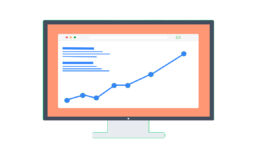
5 Things You Must Do Before Jumping Into Paid Internet Advertising

With the right strategies and knowledge in place, paid online advertising can be the driving force behind high volumes of traffic to your site which convert to robust sales leads. However, for those that are just dipping their toes into the pool of paid ads, there are some lessons that are better learned sooner rather than later. Throwing all your money at a channel you don’t really understand is not going to magically give you good traffic, and in fact it can get very expensive very quickly for those that don’t know what they’re doing. It’s a matter of sink or swim, and these 5 tips will help you do the latter.

1. Understand your keywords
You might be intuitively using keywords in your marketing without even knowing it. These are the words that site visitors enter into search engines, with the goal of finding your site. When your site also contains these keywords, in copy, tags, descriptions, URLs, links and more, Google can determine that yours is the most relevant answer to the searcher’s question.
Google Adwords is a fantastic resource to use for researching keywords associated with your industry, and who is searching them. The most important thing for new marketers to remember, is that bigger is not always better. Those keywords that get searched thousands of times per day are not necessarily the right ones for you. Firstly, they’re expensive, and secondly, your business will be swallowed up in all the competitors vying for these terms.
Long tail keywords are less popular but more effective. ‘Digital marketing’ would be what is called a head keyword, and its long tail companion might be something like ‘Digital marketing agency in Adelaide’. Fewer people may be searching for it, but it’s more of the right people who are looking for your exact service.

2. Understand the medium
We are grouping a number of types of ads under this broad ‘paid online advertising’ umbrella. Each has unique considerations for making the most of your money.
Display or banner ads are common on most websites, either across the top or pasted in a sidebar column. These are graphic driven, and target consumers in the earliest phase of the consideration process, before they are even thinking of buying. While you can choose which pages your ads will appear on, this is about as targeted as it gets.
Text ads can appear on the first search engine results page, and are less eye catching than display ads. However, they are more affordable and offer the benefit of targeting particular keywords.
You can purchase paid advertising on just about any platform. Google is an obvious choice, as is social media like Facebook and LinkedIn for reaching decision makers. You might also want to consider renting space on websites or blogs which are related to the product or service you offer.

3. Understand your tracking
The big benefit of advertising in the digital age is that just about everything is trackable. You can see who clicks, how long they stay on your site for, and who converts into actual leads, among other things. Using Google Analytics, you can see how all your campaigns are performing on a single, easy to use dashboard.

4. Understand your user journey
Landing pages are the pages of your website that your customer is directed to. The best option will differ according to what your customer is looking for, what stage of the buying process they are in, and where they have come from. While your home page gives customers a good introduction to your business, it may not always offer the most effective information to turn them into paying buyers. Importantly, they also make tracking the sales funnel a lot easier to navigate. Landing pages should have a clear call to action function, whether that be a contact form, downloading a brochure or making a call.

5. Understand the long haul
Paid advertising is not an overnight phenomenon. It requires ongoing maintenance, monitoring and A/B testing to tweak and improve your results. Determine a regular reporting schedule that will realistically work with your time frame, be it fortnightly or monthly. This amount of time is adequate to allow small peaks and troughs to be ironed out, and give you and understanding of the broader landscape. Ensure your budget is capable of supporting a long term campaign or campaigns over months and even years.
Also Read:
What You’ll Get When You Hire the Leading SEO Company in Melbourne?
Build a Solid SEO Foundation for Your Business with SEO Services in Melbourne



